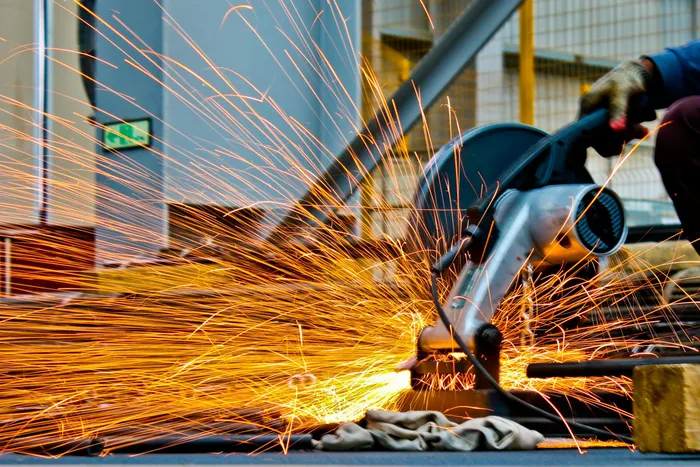ArcelorMittal South Africa warns early steps may be required to wind down Longs business
STEEL MANUFACTURING

ArcelorMittal South Africa said negotiations to shore up the business environment of its Long Business, principally to address various government infrastructure and policy failures, had come to nought so far through a six-month deferral period before it closes its Long Business.
Image: Anamul Rezwan/Pexels
ArcelorMittal South Africa (Amsa), which continues to pay heavy prices for government infrastructure and policy failures, may be left with no option but to prepare for the wind down process of its Longs Business, well in advance of September 30, 2025.
This announcement, and despite a forecast of slightly reduced headline earnings losses for the six months to June 30, caused the share price to slump 7.89% to 105 cents on the JSE by Monday afternoon - considering that three years ago the price traded above R5 a share.
On March 31, Amsa announced its decision to wind down the Long Steel Business had been deferred for at least 6 months to September 30 after it received a R1.68 billion funding facility from the Industrial Development Corporation (IDC).
The facility was now fully drawn and would enable the Longs Business to operate through the third quarter. The business would also continue to trade until the end of September, having regard to the commitments made to its customers.
However, so far, “limited” progress was made to redress major structural issues, which was the main aim of the deferral period.
“High imports continue to flood into the domestic market. Transnet's rail performance deteriorated to its lowest levels ever, resulting in significantly elevated operating risk and unaffordable additional costs being borne by the company,” Amsa’s directors said.
The challenges that have faced the group over several years include structural distortions created by the Preferential Pricing System (PPS) and export tax on ferrous scrap in favour of scrap-based steel makers to the disadvantage of integrated steel makers, weak domestic demand, and the lack of growth projects for steel.
There is also insufficient import protection and continued circumvention of tariff protections by local companies, without prosecution.
The rail service performance remained poor with associated, high, globally uncompetitive and unaffordable tariffs. In addition, electricity tariffs were unaffordable and globally uncompetitive, they said.
On two occasions in the past six months, the risk of uncontrolled blast furnace stops arose due to major rail service interruptions, on account of an "unprecedented spate of cable theft and locomotive failures."
“Additional unplanned road transport had to be deployed, resulting in higher direct, operational and handling costs of R317 million for the period,” the group's directors said.
Since March, Amsa had been exploring options to address these challenges, while the IDC conducted due diligence into the company, and the government had been pursuing structural interventions, all of which were still ongoing, they said.
“Unless a solution is implemented timeously, and to ensure the orderly closure of the Longs Business as soon as possible after the deferral period, ArcelorMittal South Africa may have no option but to take certain operational steps to prepare for the wind down process well in advance of September 30, 2025.”
Meanwhile, the group predicted that earnings per share would improve 15% to a loss of between R0.82 and R0.93 a share for the six months to June 30, from a loss of R1.09 per share at the same time last year. The full interim results are expected to be released on July 31.
The group said a global cyclical downturn in the steel industry has continued now for almost two years, which is longer than the norm. Global crude steel production fell by 1.3% from January to May 2025, compared to the same period in 2024, according to the World Steel Association.
In South Africa, all sectors except agriculture contributed to a weaker annual GDP outlook, with tough trading conditions in key steel-consuming sectors: construction, automotive, mining, fabrication, and energy and transport.
First half sales volumes were expected to be about 10% down compared to 2024’s first half. Apart from lower demand, sales volumes for flat steel products continued to be affected by high import levels, whilst long steel product sales reflected the uncertainty around its continuation.
Net realised prices in rand terms were anticipated to be more than 5% lower, impacted in part by a stronger rand-dollar exchange rate.
The steel and manufacturing industry, represented by various industry associations, appeared before the portfolio committee responsible for trade, industry and competition on June 4, 2025.
The industry expressed disillusionment with policy developments and dissatisfaction with the continued decline of the steel sector, which is creating a challenging business and investment climate in South Africa.
Imports now represented more than 35% of apparent steel consumption and significantly undermined domestic supply.
Visit: www.businessreport.co.za